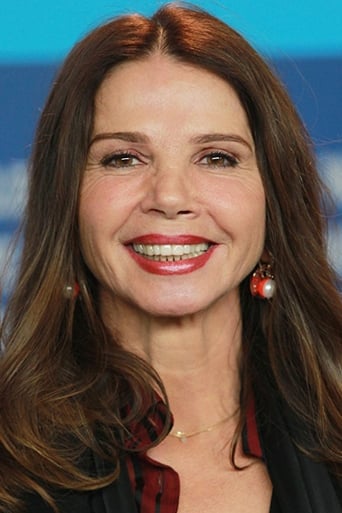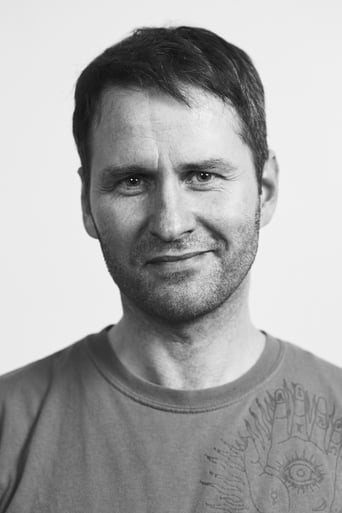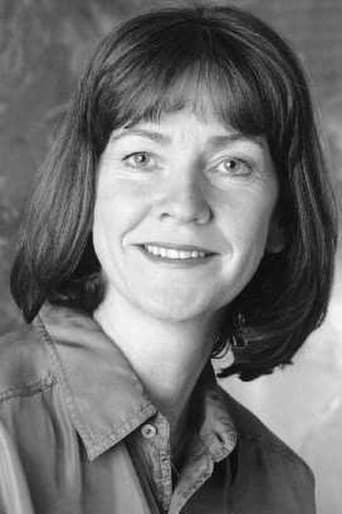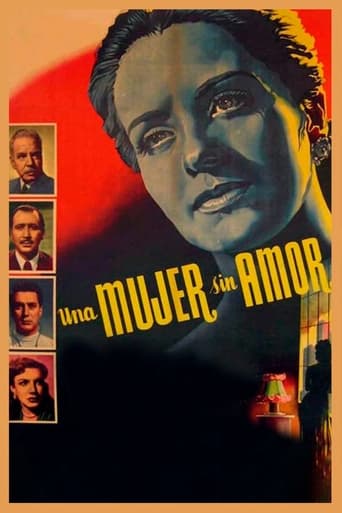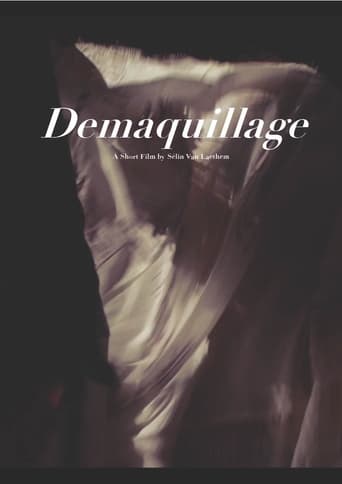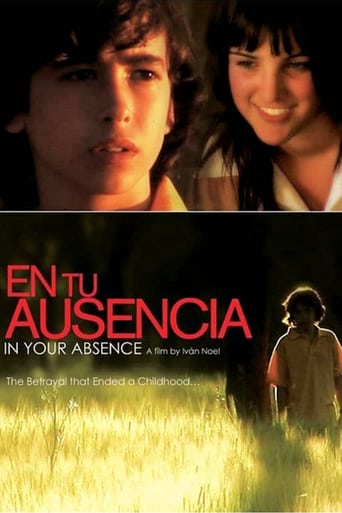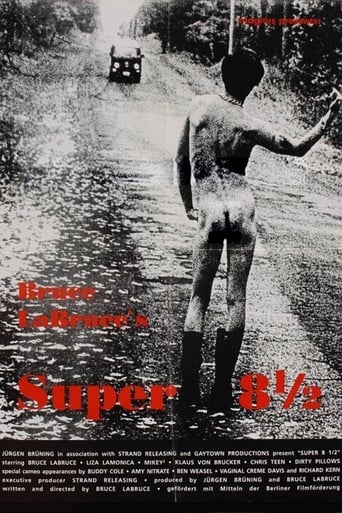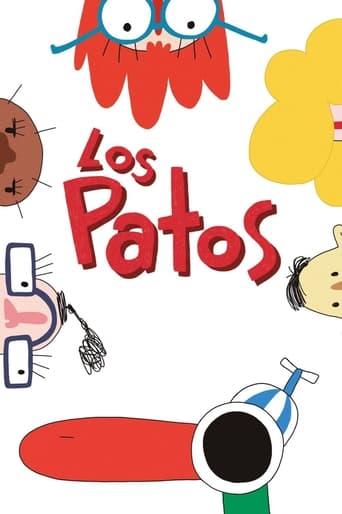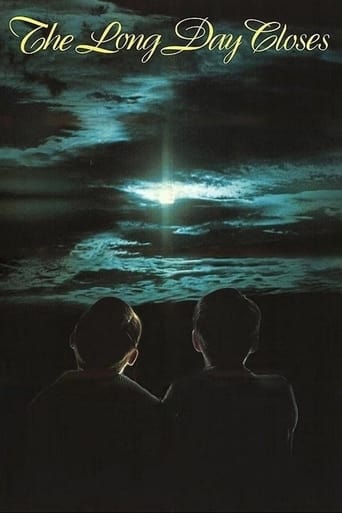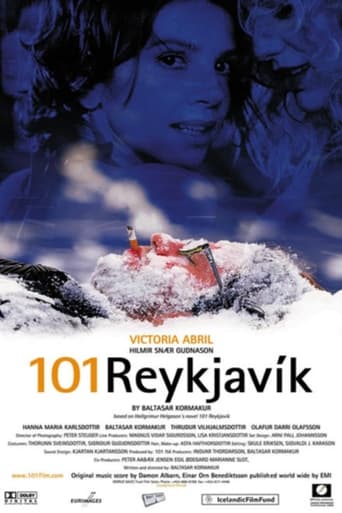
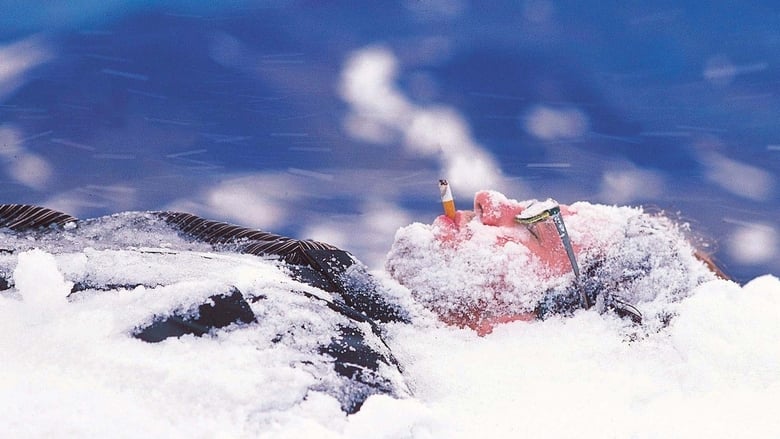
101 Reykjavik (2000)
Thirty-year-old Hlynur still lives with his mother and spends his days drinking, watching porn and surfing the net while living off unemployment checks. A girl is interested in him, but he stands back from commitment. His mother's Spanish flamenco teacher, Lola, moves in with them for Christmas. On New Year's Eve, while his mother is away, Hlynur finds out Lola is a lesbian, but also ends up having sex with her. He soon finds out he and his mother are sharing more than a house. Eventually he must find out where he fits into the puzzle, and how to live life less selfishly.
Watch Trailer
Cast
Similar titles
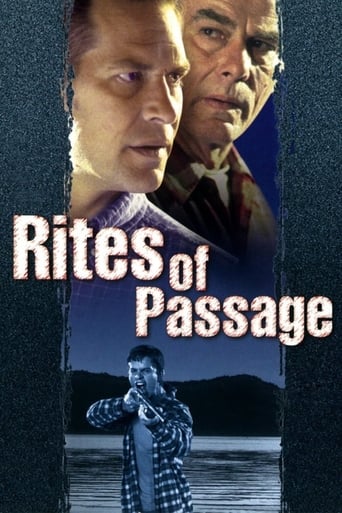
Reviews
Great Film overall
It is not deep, but it is fun to watch. It does have a bit more of an edge to it than other similar films.
The film makes a home in your brain and the only cure is to see it again.
Through painfully honest and emotional moments, the movie becomes irresistibly relatable
Presently, Iceland is not a major player in the international film circuit - the Icelandic Film Centre website proudly (/adorably) proclaims that they now have "over one hundred!" feature films released. However, if 101 Reykjavík (so named, we can only assume, for being the country's first post-centennial film) is any indication, it's quite worth tracking down those other 100 as well. For a film that casually positions itself as encapsulating the spirit of its nation, 101 Reykjavík is, in many ways exactly the remediation of stereotypes you'd expect from an Icelandic film: it's thoroughly odd, bleak, and full of isolating grandeur. And yet, debut director Baltasar Kormákur navigates expectations with a cheeky confidence and sharp, quirky sense of self-effacing humour that you can't help but love it so, even amidst the inevitable double-takes at the bizarro twists and turns it throws your way with cheerful nonchalance. Here's a prime example of how genre can be deceptive: the film is a romantic comedy revolving around an immature man-child afraid of commitment. If that sentence alone is enough to make you retch and run the other way, you're not alone. However, somehow, tossing these tropes into the icy winds of Reykjavík is enough to strip and scatter every whiff of cliché like so much powder snow. There's something utterly disarming about Kormákur's cheerily matter-of-fact approach to circumstances and character beats that would be abhorrent to traditional Hollywood audiences that somehow takes the sting out and makes them irreverent and silly instead of the stuff of major studio nightmares. What sort of 'circumstances' are we talking about here? Well, you'd be remiss to expect a traditional, straightforward Hollywood 'rom-com' from the country that created an ancestry smartphone app to avoid incest in bar hookups* (and you can only imagine the field day Kormákur would have with that). As such, our belligerent man-child's misadventures fumble past pregnancy, speed dating calibre hookup swapping, the experience of coming out in a claustrophobic community (as one character eagerly exclaims, "A REAL LIFE lesbian? What's it like??"), and, yes, incest. Kind of. And yet, they all weave unobtrusively into the grain of the film with such wide-eyed indifference, it's almost a heartier laugh than the film's snappier punchlines, of which there are many. Just check out Kormákur's depiction of the excruciating, claustrophobic dullness of an extended family dinner - we laugh because it saves us from shuddering in painful solidarity. Naturally, Kormákur's skews firmly for satire rather than neorealism here (thank goodness), but this is not to say his film is merely silly and superfluous. Here and there, amidst the goofiness, the film surges with genuine passion - pride for its beautiful, barren landscapes, captured in gorgeous panoramic crane and aerial shots here, and frustration for the boredom and aimlessness which consumes all too many of its inhabitants. It's for this reason, protagonist Hlynur (perfectly charming Hilmir Snær Guðnason, who skulks around like a wry, hipster Crispin Glover) isn't that easy to write off, in spite of his infuriating belligerence in the face of employment, romantic partnership, responsibility hell, adulthood as a whole. We know he's still suffering the aftershocks of an ambiguously tragic childhood, but his perennial smug selfishness burns through any accrued sympathy. And yet, in his poetically grim voice-over interludes, Hlynur seems to diagnose himself as a product of the deep stagnation and hopelessness of his environment. He's not as badly off as many of the substance-abusive or infected sex-maniacs who whirl around him, but, in his own words, he's so pleasantly, functionally depressed he considers life only a fleeting break from death. Eat your heart out, Ingmar Bergman. There are bright spots, assuredly - the wildly effervescent Victoria Abril's visiting Flamenco teacher, Lola, for example, who lights up the film every time she flits through it. However, time shows that even they are usually as amorally tainted as the rest of the snowy wasteland surrounding them. Not "bad", though, as Hlynur's sole moment of introspection crucially expresses - every person, scenario, and facet of life is both good and bad, and must be accepted as is.It's a resonant moral in a film full of little, universal truths, all wrapped up in a deceptively mesmerizing, surprisingly catchy soundtrack of Icelandic electro, mostly remixes of the classic The Kinks tune "Lola". 101 Reykjavík is thoroughly fresh, sharp, hugely funny, and soulfully mournful, yet bundled together with such quirky charm you would pinch the film's cheeks if the film had cheeks to pinch. It may not be the most obvious pick for Friday night viewing for non-Icelandic viewers. But it could just scratch all of those originality itches you didn't even know you had. -8/10 *Yes, really. It's called Íslendingabók (translated as "The Book of Icelanders"). Its tagline is "Bump in the app before you bump in bed". If you find this as hilarious and awesome as you should, you will thoroughly enjoy this film.
"Eskimo Brother" is a colloquialism that I hear thrown around, which describes a bond between two people via having slept with the same partner. Hallgrímur Helgason's film 101 Reykjavik (2000) brings a new dynamic tension to this term. The movie's protagonist, Hlynur (Hilmir Snær Guðnason), after sleeping with Lola (Victoria Abril), a flamenco instructor from Spain who has been lodging with his mom (Hanna María Karlsdóttir) and him, finds out that this attractive dancer is his mother's lover. This information is difficult for Hlynur to pallet, and he becomes emotionally distraught because of his new step-mother's infidelity which results in him becoming the illegitimate father of his baby brother. 101 Reykjavik is an intriguing watch. It's a bold film, pertinent to Iceland where there is a strong sense of kinship identity in the tightknit country. With a national population of 280,000, an outsider could easily be mistaken that everyone knows everyone, and this film plays into that idea that your family business is theirs. Considering the new Íslendingabók database which is a project that aims to trace and record the genealogy of everyone in Iceland back to the settlement, it is a fascinating time to watch this movie that plays so heavily on complicated and taboo relationships. In a country where patronymic and matronymic surnames are used instead of unified family names (in Iceland, rather than Payne McMillan, I would be Payne Martinson—that is, son of Martin), 101 Reykjavik shows that humans are a less linear product of upbringing than an amalgamation of sources and experiences. In a sense, Helgason's film is about keeping up with the times. Released ten years before Icelandic Parliament adopted a gender neutral definition of marriage, we see Hlynur off put and perplexed by Lola's sexual identity that does not fit into his narrow scope of the homosexual/heterosexual dichotomy. 101 Reykjavik is a millennial coming of age story. Hlynur, who is unwilling to make radical changes to his lifestyle in the face of his new family structure. When his mother announces that she is going to raise Lola's baby with her, it does not occur to him that he should move out and start a life of his own, but instead must adapt to these abnormalities within the existing family structure. This film might drive some viewers crazy just by the nature of Hlynur who lacks any semblance of direction in life. He starts out living with his mother, surviving on welfare checks; unmotivated to go out and find a job, Hlynur spends most of his daylight hours surfing the internet and masturbating, and then going out at night to binge drink and party. His assumption though that there is nothing wrong with this sloth lifestyle but then condemns his mother and Lola who seize upon opportunities to expand their horizons make Hlynur an extended metaphor for those who usher in change when it benefits them but scoff it when poses personal obstacles. The film does take a judgmental tone toward people who are indignant to change because it is uncomfortable for them, however it does not advocate outright for modernity. Hlynur's obsession with internet pornography, for example shadow his relationships in the real world. And Hlynur all but ruins the magic of Christmas when, in order to save time cleaning up needles, he purchases a hideous aluminum colored tinsel tree that rotates while proclaiming, "Merry Christmas." At other times though, Helgason blends themes of globalization with the Icelandic landscape in an enjoyable and accepting way. Notably, the musical score throughout has a very futuristic sound, like robots or synthesizers, but the melodies sound folksy. Also, Lola who is the greatest outsider of anyone in the film—Hlynur even says that people don't come to Iceland; they are only born their—is fascinating and welcomed by almost everyone she meets, including Hófí, another woman who is romantically invested in Hlynur.The heavy mismatching and confusion of identities illustrates the cultural paradigm of old versus new that is prevalent in Icelandic cinema. For those American viewers that don't particularly care to read, they are in luck because much of the film is spoken in English, because that is the language the Spanish character and Icelandic people are able to speak in common. The fact that neither are able to communicate in the language most comfortable to them parallels nicely the uneasiness of these characters that are experimenting and developing while faced with serious emotional complication. I recommend this film because of its humorous confrontation of issues regarding identity and ability to defy new obstacles. Even though it deals with heavy issues such as addiction and adultery, it has a heartwarming ending. It's a great film for people that are anxious about the challenges that accompany increasing development and globalization.
Viewing life through the lens of an uninspired, socially defective, 30 year old man doesn't seem particularly uplifting. Geek Hylnur, the protagonists of the film '101 Reykjavik', doesn't want much out of life. He is content living at home with his mother, spending time at the local bar and surviving purely on the social benefits the state provides. However, the story of Hlynur transpires to be one full of fantasy, humor and lust. And in the end, it gives the audience the hope that maybe meaning can be found after all. '101' Reykjavik', directed by Baltasar Kormakur, is set in Reykjavik, Iceland. The location sets the mood for the entire film, and can be seen as a representation of Hlynur. Hlynur is somewhat of an "anti-hero" - an immature, childish and socially isolated man who does not want more out of life than he currently enjoys. He spends his days half-heartedly searching for employment, without any real conviction behind his actions. He is blissfully unaware of any greater pleasure that can be found in life. How quickly life can change. A night of passion, an unexpected love affair and an unusual family dynamic all emerge, shocking Hlynur out of his lull and into a world full of confusion and complications.Kormakur's characterization of Hlynur is the driving force behind the film's success. Hlynur isn't an active participant in life - life mostly just happens to him. His life borders on the brink of tragedy, meaningless and hilarity. It's an uncomfortable balance that leaves the audience desperately entertained. Voice overs are utilized to convey the isolation of Hlynur and how desperate his struggle is to connect to the world his lives in. The coming of age of Hylnur is a huge theme throughout the film. Hlynur begins rid himself of his past life, and a chance to turn away from the dark and gloomy tones that had pervaded his life. The stunning Icelandic landscape around him suggests that there is in fact beauty and hope to be found in the world. Kormakur directs the film brilliantly. The setting of Reykjavik is used as a metaphor for for Hylnur. It is snowy, desolate and unwelcoming - a perfect representation of Hylnur and his love life. The establishing shots throughout the film of the magnificent landscapes of Iceland and it's bustling nightlife do a marvelous job of making the audience feel like they are actually at the location of the story. Dry, unexpected humor is strewn throughout the film in a masterful way. This is displayed perfectly in an interaction between Lola, a local Spanish flamenco instructor, and Hlynur Lola: "So, what do you do?" Hlynur: "Nothing. Lola: "What kind of nothing?" Hlynur: "The nothing kind of nothing."Kormakur uses humor to engage the audience, while at the same time revealing the depths of Hlynur's meaningless and loneliness extend to. I particularly enjoyed the performance of the actor who portrayed Hlynur - Hilmir Snaer Gudnason. Through him, we can get a sense of Hlymur's emptiness and longing for meaning throughout the film. I found myself feeling sympathetic towards him, despite many of his unendearing character traits. Gudnason, and all the other actors in the film, deliver their dialogue in a believable and engaging way, pushing the film along with their wonderful performances.'101 Reykjavik' is a wonderful reflection of the changes occurring in Iceland, in particular the progressive social values that the film depicts. I enjoyed the film thoroughly. I felt as though the plot progressed a little slowly at times, but the performances of the lead actors drove the film through these dull periods. Despite the fact that the plot is completely bizarre, I found myself relating to the plight of Hlynur and hoping that he could overcome the trap in which he had found himself. UItimately, the film conveys a timely message of hope. I would definitely recommend this film. If you are able to overcome the complete absurdity of the storyline, you will find yourself engaged with the characters, while at the same time enjoying the breathtaking scenery that is on offer throughout the film. Kormakur proves himself to be a fantastic director, and the dialogue between the characters is dry, witty and unpredictable. '101 Reykjavik" is constantly entertaining and well worth watching.
'101 Reykjavik', directed by Icelandic director Baltasar Kormákur in 2000, and based off the novel by the same name by Hallgrímur Helgason offers a melodramatic look into the changing cultural landscape of Iceland as they enter the modern world through urbanization. 101 Reykjavik also depicts an oddly comedic coming-to-age story that turns the main character's mundane lifestyle upside down into a quirky wake-up call to enter the real world.'101 Reykjavik' is the story of an almost 30 year-old man by the name of Hlynur. Hlynur has no job, and doesn't really care to find one, while he enjoys downloading porn in the daytime and going out to the bar in Reykjavik and getting smashed- usually hooking up with a girl almost every night. On top of all this, he lives with his mother. However, one day, along comes his mother's friend Lola, a Spanish flamenco instructor. Quickly, Lola adds a bit of foreign color and excitement to the movies landscape and to Hlynur's dull lifestyle. Lola, we find out, is a lesbian who is in love with Hlynur's mother, Berglind, who also shares this love in return. One night, while Berglind is away visiting her relatives, Hlynur takes Lola out for a night on the town and, unsurprisingly, gets smashed and has sex with Lola. Hlynur becomes torn by this hookup for he is jealous of his mothers and Lola's relationship. Yet, out of respectful for his mother, he wants to accept her lesbian relationship with Lola. The film comes to a climax when we find out that not only may the girl that he has been hooking up with may be pregnant, but also that he has impregnated Lola. Hlynur is pushed to the edge. We learn that the girl isn't pregnant with his child, but that doesn't calm Hlynur who knows that the child Lola is carrying is still his. The movie begins to come to a close with Hlynur beginning to realize that he needs to change his lifestyle and possibly enter the "real-world" that he had dreaded to be'come apart of.As my first Icelandic film '101 Reykjavik' was surprisingly pleasing and oddly comedic. By the end of the movie I was both engaged with analyzing the character of Hlynur while noticing symbolism to common universal themes such as coming-to-age, but also noticing themes that have becoming common for Icelandic film.The coming-to-age theme is overwhelming present throughout the film. As a man who still lives and relies on his mother, and on the government for that matter on unemployment checks, he sees no reason to work in life since he can easily live a happy life with what he gets and has to look out for no one. With the progressing pregnancy of Lola Hlynur begins to realize the child is on the way and he, out of respect for his mother, but also realizing that he has to live with his mother and Lola, begins to realize he will have to care for his son/brother. With the arrival of the child Hlynur realizes his new life as a caregiver and comes out of his stubborn way of life. With an arguably religious scene where he is lying on a mountain covered in snow that starts to wash off with rain, Hlynur is cleansed of his past life- both his lazy lifestyle, and of his jealously over his mother and Lola. This scene is appropriately juxtaposed with the baptism of the child and both scenes are a complete turn away from the dark and gloomy tone of the whole film, offering for the first time a look at the true beauty of the natural landscape of Iceland.Seeing this juxtaposition with the rural landscape of Iceland for the first time presents us with the typically Icelandic theme of the rural vs. urban landscape that is representative of Iceland moving from a small and relatively unknown country into the modern-day landscape. The sense of disconnect felt by Hlynur between real-life and that of the entertaining, and of the depicted almost surreal lifestyle of the city, at least for me, could be representative of the whole nations struggle for finding its place in the new world, if not, at least a balance between the two. Hlynur's age of 30 also reminds me of Generation X- a transition generation between the old and the new- this could also be another symbolic element of the film as it shows that the young adults in Iceland are also at a disconnect with feelings of connecting their childhood lives from the 'rural' Iceland, with that of their adulthood lives in the 'urban' Iceland.If I were to offer any criticism of the film it would be that I felt the film stopped short of really offering an in-depth look at the characters in the film. While the characters were presented well I felt that it would have been interesting to go further in analyzing the nightlife lived out by Hlynur to further explore the generational disconnect. However, the awkward pause that is presented by looking at the in-depth nature of this could also be a cleaver way of expressing the awkward nature of Icelandic people themselves, and of their shy, reserved, and awkward lifestyle that is holding back any true expression.Overall, I loved the film, and would recommend it to anyone with in interest in looking at the lifestyles and personality of the Nordic people. This, coupled with an enjoyment of an old sense of disconnected humor, paints a beautiful melodramatic look into the changing cultural landscape of Iceland, while offering a fun and quirky coming-to-age story.
